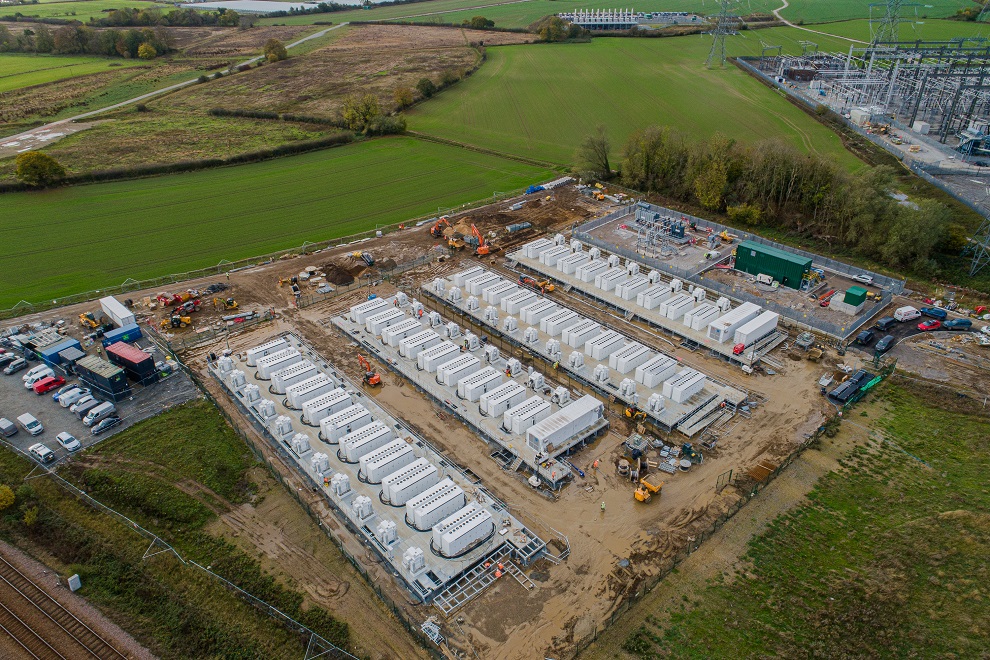The Pillswood project near Hull towards the North Sea coast of England has been developed by Harmony Energy Limited and aims to provide load balancing services to the electricity grid. It is claimed to store enough energy to power around 300,000 homes for two hours.
According to Harmony, the project is based on Tesla battery technology, employing multiple units of the company’s Megapack system. Each unit is about the size of a shipping container and is capable of storing over 3MWh of energy. Construction of the project has also been managed by Tesla.
The site is located adjacent to National Grid’s Creyke Beck substation, the same connection point proposed for phases “A” and “B” of the world’s largest offshore wind farm, Dogger Bank, which is set to go live on the first phase in Summer 2023.
Batteries enable National Grid to maximise the efficiency of wind farms by reducing the amount of time a wind farm needs to be switched off, ‘curtailed’, due to supply/demand imbalances or network constraints.
Construction of the Pillswood project has been managed by Tesla. The project was originally intended to become operational over two phases in December 2022 and March 2023, but the timetable has accelerated to enable both phases to energise this month, in time to support National Grid in its efforts to provide stable and secure power to UK households over the challenging winter period.
The project will be operated through Autobidder, Tesla’s algorithmic trading platform, which has demonstrated a strong track record over the past two years in managing the Holes Bay and Contego projects – two existing battery storage projects also developed by Harmony Energy Limited in conjunction with FRV.
Peter Kavanagh, Harmony Energy Director, said: “The completion and energisation of the Pillswood scheme, the largest of its kind in Europe by energy capacity, is a significant milestone for Harmony Energy Income Trust, being the first of six similar projects the Trust intends to deliver in the coming year.
“It is also a significant achievement for Harmony Energy Limited: this project is the third, and largest, battery energy storage project which we have developed and subsequently delivered through construction.
“All stakeholders have recognised the importance of achieving energisation for this project ahead of winter, and we would like to thank Tesla, G2 Energy and Northern Powergrid for their efforts in delivering the project ahead of schedule despite a very challenging geopolitical and global supply chain environment.
Peter added: “Battery energy storage systems are essential to unlocking the full potential of renewable energy in the UK, and we hope this particular one highlights Yorkshire as a leader in green energy solutions.
“These projects are not supported by taxpayer subsidy and will play a major role in contributing to the Net Zero transition, as well as ensuring the future security of the UK’s energy supply and reduced reliance on foreign gas imports.”
Battery energy storage systems (BESS) are the key to unlocking the full potential of intermittent Battery energy storage systems offer the ability to stabilise and balance the outflow of electricity from renewable sources, and ensure it is used most effectively. They are the key to a flexible energy system that can respond instantaneously to changes in supply and demand.
Discover more from Green Innovation News
Subscribe to get the latest posts sent to your email.





